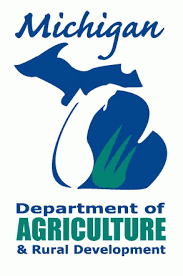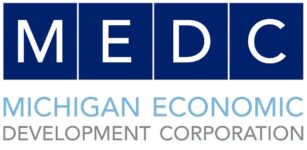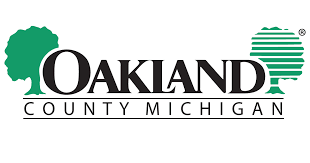Contact: Kathleen Achtenberg achtenbergk@michigan.org
The Michigan Strategic Fund today approved a broad range of initiatives, business expansions and community revitalization projects to drive the economic recovery of Michigan’s businesses and communities and position the state for future prosperity, the Michigan Economic Development Corporation announced today.
“Today’s MSF actions build on our efforts to deploy It is more vital than ever that we stay focused on restoring economic prosperity for all Michiganders and the projects approved today are putting our state in a position to not only recover economically, but to thrive.”
With today’s announcement, the MEDC has deployed 14 response programs in the past two months to support small businesses, communities, entrepreneurs and workers in all corners of Michigan in combatting the economic impacts of COVID-19, providing support for more than 2,700 companies and helping retain more than 11,000 jobs for Michigan workers. These programs have reached all 83 counties in the state, assisting businesses across a range of industries, including food service, retail, healthcare, construction and professional services, among others.
New Financial and Programmatic Support Available for Small Businesses and Communities Impacted by COVID-19
Metro Community Development, Inc., a Community Development Finance Institution based in Flint, received approval on a $2 million loan through MEDC’s Capital Access program to make micro and small business loans ranging from $5,000 to $250,000 to Michigan’s small businesses in the 13 counties it serves, with an emphasis on businesses located in economically disadvantaged areas. The program is aimed at assisting those businesses that have been most impacted by the COVID-19 virus, such as restaurants, coffee houses, retail stores, and service providers. Businesses can use these loans primarily for working capital, acquiring machinery and equipment, and inventory.
Metro Community Development will begin accepting loan applications today. Businesses interested in applying for a loan should visit https://www.metrocommunitydevelopment.com/business-lending to apply through the Metro Community Development BizTHRIVE program.
The Metro Community Development loan provides business relief in counties not previously covered through a $2 million loan approved by the MSF in April to Northern Initiatives. Northern Initiatives is using the funds to assist small businesses in the 77-county region it serves. Between that loan and today’s approval for Metro Community Development, businesses in all counties in Michigan except Wayne have been provided access to micro loan funds through the MEDC Capital Access program. It is anticipated that a similar loan will be recommended to cover Wayne County at an upcoming MSF meeting.
The Michigan Strategic Fund today also approved updated guidelines to the MI State Trade Expansion Program (MI-STEP) to increase the reimbursement ceiling from 50 percent to 75 percent for international website development for companies impacted by COVID-19. Activities may include website translation, search engine optimization and localization services. The increased cap will help provide greater support for companies in going global with their business, making it more favorable for them to participate in export activities. The approved changes, based on directives from the U.S. Small Business Administration as part of the Coronavirus Aid, Relief and Economic Security (CARES) Act, also include increasing caps for allowable reimbursements for small- and medium-sized businesses engaged in exporting activities.
MI-STEP is designed to spur job creation by empowering Michigan small businesses to export their products and is administered by MEDC’s Export and International Trade Program. MEDC’s MI Project Exception Program (MI-PEP), which provides export assistance to companies that do not meet the SBA’s small business requirements, also received MSF approval of similar updates to its guidelines so that it remains consistent with the MI-STEP program.
The MSF also approved the 2019 Action Plan amendment for the Community Development Block Grant program, which includes incorporating $20.5 million in CDBG Coronavirus Response funds into the program to be used for CARES Act eligible activities.
“Over the past two months, we have responded with agility to expand existing programs and develop specific relief efforts to face the current crisis while keeping our attention on the future economic needs of the state,” Burton said.
Key Michigan Industries Expanding with MSF Support
Additional projects approved today by the Michigan Strategic Fund are providing key opportunities to support businesses that serve as a foundation to create high wage growth and regional impact across the state. This includes business growth projects in critical industries including medical device manufacturing and automotive manufacturing.
Packaging Compliance Labs is a medical device packaging engineering and testing firm headquartered in the city of Kentwood. The company specializes in assisting global medical device manufacturers in speeding new medical devices to market while maintaining regulatory compliance to FDA and international requirements.
PCL is experiencing increased demand and plans to expand at its Kentwood facility, a project that will generate a total private investment of $2.57 million and create 27 high-wage jobs. PCL is also heavily invested in the training and development of its employees with its implementation of PCL “University” to put employees in a position for upward mobility. As a result, PCL has been awarded a $135,000 Jobs Ready Michigan program performance-based grant. Michigan was chosen over competing sites in Denver and Tampa.
The Jobs Ready Michigan program was designed to provide grants for business expansion and location projects that lead to job creation and investments in Michigan that have a demonstrated training need, particularly in pursuing new opportunities for high-tech, high-demand, and high-wage jobs.
“PCL has a worked closely with the Right Place, MEDC and several other local organizations since our inception in 2014. We are grateful to have these support systems available in our community,” said Packaging Compliance Labs President Matthew Lapham. “This grant is another example of the great resources offered to small businesses here in Grand Rapids.”
The Right Place has offered staff time and resources in support of the project. Individuals interested in careers with PCL should visit https://pkgcompliance.com/careers-internships/.
ArcelorMittal Tailored Blanks Americas Corporation is a subsidiary of ArcelorMittal, the world’s leading steel and mining company, serving the automotive industry including all major OEMs and Tier 1 suppliers. In November 2016, the company received a $2 million Michigan Business Development Program performance-based grant for plans to establish a manufacturing facility in the I-94 Industrial Park in the city of Detroit. The project was expected to generate a total capital investment of $83 million and create 120 jobs, and was the company’s first and only facility in Michigan.
The company has reached its milestones and has recently secured new business to begin manufacturing contracts with two different automotive OEMs. The new product lines will require an expansion at ArcelorMittal’s existing facility in Detroit. As a result, the Michigan Strategic Fund today approved an increase to the company’s MBDP grant and a five-year, 100-percent State Essential Services Assessment exemption valued at $379,200. ArcelorMittal pays higher than average wages and provides employees with an intensive technical training program, allowing the company to retain highly skilled employees. Today’s actions will strengthen Michigan’s standing as a leading place for manufacturing companies to expand. To learn more about ArcelorMittal Tailored Blanks visit https://usa.arcelormittal.com/our-operations/tailored-blanks.
MSF Awards $950,000 to Continue Driving Commercialization of University Technologies
In support of the state’s entrepreneurial ecosystem, MSF also awarded $950,000 to Michigan Translational Research and Commercialization (MTRAC) Programs across the state. MTRAC programs supported by the MSF today include:
MTRAC supports the acceleration of technology transfer from Michigan higher education institutions, nonprofit research centers and hospital systems for commercialization of competitive-edge technologies in the key areas of agriculture-biology, advanced computing, advanced transportation, life sciences and advanced materials. The MTRAC program is supported by funds from the MSF and administered by the MEDC, with additional funding coming from partner institutions.
More information on those awards can be found here: https://www.michiganbusiness.org/press-releases/2020/05/michigans-entrepreneurial-ecosystem-receives-nearly-$1-million-to-support-high-tech-university-researchers/.
Community Revitalization Projects Supported by MSF to Help Create Vibrant Communities, Attract Talent
The Michigan Strategic Fund also approved five community revitalization projects that are helping to create the vibrant communities that attract talent through innovative placemaking. By contributing to traditional downtown districts and revitalizing public space in geographically disadvantaged area these projects are helping to establish attractive places to live, work and play.
The Woodward at Midtown project will construct a new five-story mixed-use building on a vacant site along the Woodward corridor in the Midtown neighborhood of Detroit. The completed project will include retail space on the first floor and 204 residential units on the upper four floors, with 41 of the units being reserved for individuals earning 80 percent or less of the area median income. The project is expected to generate a total capital investment of $59 million and will result in activating one of the last remaining vacant lots in the area, while also bringing needed residential housing to the area. MSF today approved a $5.3 million Michigan Community Revitalization Program performance-based loan participation in support of the project.
The City of Detroit Brownfield Redevelopment Authority also received MSF approval of a brownfield work plan including state tax capture in the amount of $900,841 to be used for the remediation of brownfield conditions at the site. The city of Detroit Downtown Development Authority is also supporting the project with a $2.2 million loan, reduction of the land acquisition price, approval of the local portion of the brownfield tax increment financing with an estimated value of $1.55 million, and anticipated approvals of Commercial Rehabilitation Act and Neighborhood Enterprise Zone tax abatements valued at more than $10 million. The city of Detroit is engaged with MEDC’s Redevelopment Ready Communities program.
Bagley Development Group, LLC plans to rehabilitate a historic, eighteen-story, mixed-use building in the heart of downtown Detroit. The United Artist Building will consist of 148 mixed-income residential units and first-floor commercial space. The project is expected to generate a total capital investment of $73 million and create 25 full-time equivalent jobs, and will reactivate a long-vacant historic asset, increase density near Grand Circus Park, and bring much-needed affordable housing to the area. MSF today approved a $5 million Michigan Community Revitalization Program performance-based loan participation in support of the project. The city of Detroit plans to contribute $3 million in Community Development Block Grant (CDBG) funds toward the project and is anticipated to include both an Obsolete Property Rehabilitation Act abatement valued at $382,456 and a Neighborhood Enterprise Zone abatement valued at $8.3 million. The city is also providing a $2.5 million loan from the Downtown Development Authority.
The village of Cassopolis has received $2.8 million in CDBG funds for public improvements for the Imagine Cass Streetscape Transformation project in downtown Cassopolis. The project will build on the village’s comprehensive “Imagine Cass” master plan that focuses on four main themes by implementing physical improvements that impact more than 400,000 square feet of public space in downtown Cassopolis and the surrounding corridors. These improvements will enhance the aesthetics and infrastructure of the district, while also improving connectivity and access of low- and moderate-income community members to local businesses and services, encouraging private investment and enhancing safety for pedestrians and bicyclists. Specific activities that will be completed include new striped bike lanes, pedestrian crosswalks, traffic lane reductions to help slow traffic to a safe speed, improved landscaping, lighting, public seating, free WiFi and replacing existing water main infrastructure. The total project cost is estimated to be $5.95 million. The village of Cassopolis is contributing $3.15 million toward the project.
The city of Ishpeming has received $1,896,342 in CDBG funds for public facilities improvements needed for the Senior Center Public Facilities development project in downtown Ishpeming. The project includes the construction of a new senior center that will comprehensively serve the senior citizens of the area and the demolition of the previous, blighted center to allow for higher-density downtown development. The total project cost is estimated to be $2.073 million, with the Greater Ishpeming Commission on Aging and the city of Ishpeming providing $207,338 toward the project.
In addition, a $490,730 CDBG grant was recently approved under MSF delegated authority for the Senior Center Public Facilities project in Negaunee. The city of Negaunee is contributing $52,136 in local funds toward the project. The project will allow the city to continue to provide services and opportunities to senior citizens who reside in Negaunee and the surrounding communities.
The City of Lansing Brownfield Redevelopment Authority has received MSF approval of a brownfield work plan that will include $19,844,895 in state tax capture reimbursement for the Red Cedar development project in the city of Lansing. The project will be located on the former Red Cedar Golf Course site, redeveloping a 35.57-acre portion of a 60-acre riverfront site into a mixed-use development with several components including two hotels, an assisted living facility, multi-family housing, student housing, retail, restaurants, public infrastructure and placemaking improvements. The remainder of the 60-acre site will be transformed through an Ingham County Drain Commission project into a public park with trails and wetlands.
The project is expected to generate a total capital investment of $255.6 million and create approximately 397 full-time equivalent jobs. The city of Lansing is supporting the project through the approval of the local portion of the brownfield tax increment financing with an estimated value of $39.69 million and the Lansing Board of Water and Light will be investing $278,965 to remove an electrical substation. The city of Lansing is certified with the MEDC’s Redevelopment Ready Communities program.
“Today’s actions by the MSF Board send an important signal that the state of Michigan is focused on COVID-19 recovery efforts while continuing to support the businesses and community projects that will secure the long-term economic health of our state.”
To learn more about MEDC’s COVID-19 response programs and the impact they are having on economic recovery efforts, visit michiganbusiness.org/covid19response. Other resources for businesses across Michigan struggling with economic losses as a result of the COVID-19 virus can be found online at michiganbusiness.org/covid19. The MEDC has also developed a FAQ for Michigan businesses and communities at michiganbusiness.org/covid19-faq.
Information around this outbreak is changing rapidly. The latest information is available at Michigan.gov/Coronavirus and CDC.gov/Coronavirus.
About Michigan Economic Development Corporation (MEDC)
The Michigan Economic Development Corporation is the state’s marketing arm and lead advocate for business development, job awareness and community development with the focus on growing Michigan’s economy. For more information on the MEDC and our initiatives, visit www.MichiganBusiness.org. For Pure Michigan® tourism information, your trip begins at www.michigan.org. Join the conversation on: Facebook, Instagram, LinkedIn, and Twitter.







